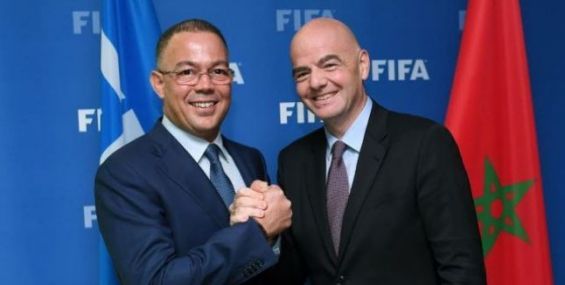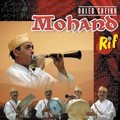Morocco’s bid to host the 2026 World Cup was submitted on the 15th of March, competing against the North American one led by the United States, Canada and Mexico. The three nations presented a 530-page World Cup bidding proposal, shedding light mainly on the physical and organizational structures and facilities (stadiums, airports, hotels …) required by FIFA.
For its part, Morocco presented a «lighter» proposal that contains only 193 pages, showcasing the country’s plans. The latter, however, has attracted the attention of several countries which publically showed support for the bidding nation, including France, Belgium, Luxembourg, Serbia and Russia.
The strengths of the Moroccan candidacy
The Moroccan bidding document sets a number of criteria that are likely to seduce the voters. The first one to site is the easy going time zone that is close to European countries and which would consequently, make it easier for FIFA’s broadcasting rights and marketing. Indeed, «60% of the participating countries will be in a time zone within plus or minus 3 hours», according to the Moroccan bid.
Another factor that weakens the North American joint bid is the US’ controversial gun policy. The latest mass shooting in a high school in Florida has pushed hundreds of thousands of young American to take the streets in Washington, calling for a tighter gun law. Morocco has mentioned in its bid, as reported by Associated Press on Monday, Morocco referred to its limited gun circulation.
Moreover, in its bidding proposal Morocco also refers to its internationally recognized fight against terrorism, recalling that none of the potential host cities has been home to a terror attack in the past five years.
An African bid first and foremost
The Moroccan bid is a continental one, confirmed Ahmad Ahmad President of CAF, the African association football governing body, supporting the Kingdom. «As president of CAF, I think it’s an honor for all Africa to bid for the 2026 World Cup».
For now, as stated by the BBC, Morocco has already secured the support of 49 of the 54 African federations and 12 of the 55 European federations.
How will FIFA proceed ?
After receiving the bidding proposals of the two candidates, the group set to assess the two bids will start visiting football federations in Morocco, Canada the US and Mexico.
Their assessment will be based on three aspects, first by examining the conformity of the bid, the possible risks that might emerge, and finally the technical part.
Once the visits and assessments are over, the FIFA will have to decide on the 2026 World Cup host in June at a conference.




 chargement...
chargement...












